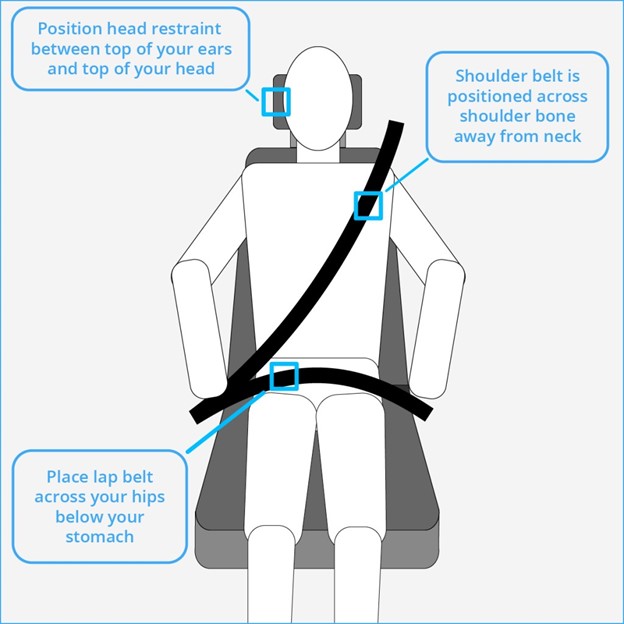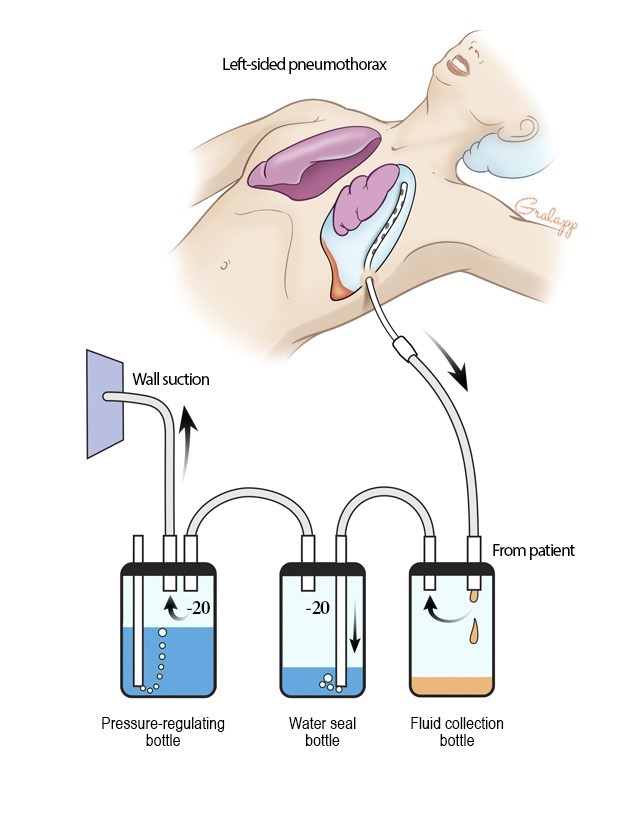A nurse is applying a belt restraint to a client who has become physically aggressive. Which of the following actions should the nurse take?
Apply the restraint under the client's clothes.
Tie the restraint to the railing of the client's bed.
Place the client in a sitting position.
Ensure the restraint is placed across the client's chest.
The Correct Answer is C
a. Applying the restraint under the client's clothes: Restraints should be applied over the client's clothes to avoid direct skin contact and reduce the risk of skin irritation or injury.
b. Tying the restraint to the railing of the client's bed: Restraints should not be tied to bed rails or any other fixed objects. This can increase the risk of injury to the client and should be avoided.
c. Placing the client in a sitting position is appropriate when applying a belt restraint, as it helps prevent respiratory compromise and allows the client to maintain a safer and more comfortable posture.
d. A belt restraint should be placed around the client's waist, not across the chest, to avoid restricting breathing.

Nursing Test Bank
Naxlex Comprehensive Predictor Exams
Related Questions
Correct Answer is C
Explanation
Elevating the head of the bed while sleeping is a recommended strategy for managing GERD (gastroesophageal reflux disease). By raising the head of the bed, gravity helps to prevent stomach acid from flowing back into the esophagus, reducing the likelihood of acid reflux and associated symptoms.
"You should eat three large meals and two snacks per day" is not recommended for GERD management. Instead, it is advised to have smaller, more frequent meals throughout the day to reduce the pressure on the stomach and minimize the likelihood of acid reflux.
"You should lay down for 1 hour following a meal" is not recommended for GERD management. It is advised to avoid lying down immediately after meals, as this can increase the risk of acid reflux. It is generally recommended to wait at least 2 to 3 hours before lying down.
"You should only drink 2 cups of coffee per day" is a specific recommendation related to caffeine intake, which can potentially trigger or worsen GERD symptoms in some individuals. However, this statement alone does not encompass the comprehensive dietary recommendations for managing GERD.
Correct Answer is A
Explanation
Ensuring the device is kept below the level of the client's chest is important to ensure that the drainage system functions properly by allowing the fluid and air to flow downhill. Placing the device below the level of the chest helps facilitate gravity drainage.

Continuous suction is required for proper functioning of the chest tube drainage system. Clamping the chest tube can disrupt the suction and impede the removal of air or fluid from the pleural space. Only in specific circumstances, such as when changing the drainage system or assessing for air leaks, may the healthcare provider request a temporary clamping of the chest tube.
Positioning the client semi-Fowler's, with the head of the bed elevated, can help promote lung expansion and improve oxygenation. The specific positioning may vary depending on the client's condition and the healthcare provider's recommendations.
The nurse should empty the collection chamber as per the facility's protocol, which typically includes monitoring the drainage and emptying it when it reaches a certain level. Regular emptying of the collection chamber helps maintain proper functioning of the chest tube system and allows for accurate measurement of drainage output.
Whether you are a student looking to ace your exams or a practicing nurse seeking to enhance your expertise , our nursing education contents will empower you with the confidence and competence to make a difference in the lives of patients and become a respected leader in the healthcare field.
Visit Naxlex, invest in your future and unlock endless possibilities with our unparalleled nursing education contents today
Report Wrong Answer on the Current Question
Do you disagree with the answer? If yes, what is your expected answer? Explain.
Kindly be descriptive with the issue you are facing.
